Jurgen Klopp: The Master of Gegenpressing
Jurgen Klopp is one of the most successful and influential football managers in the world.
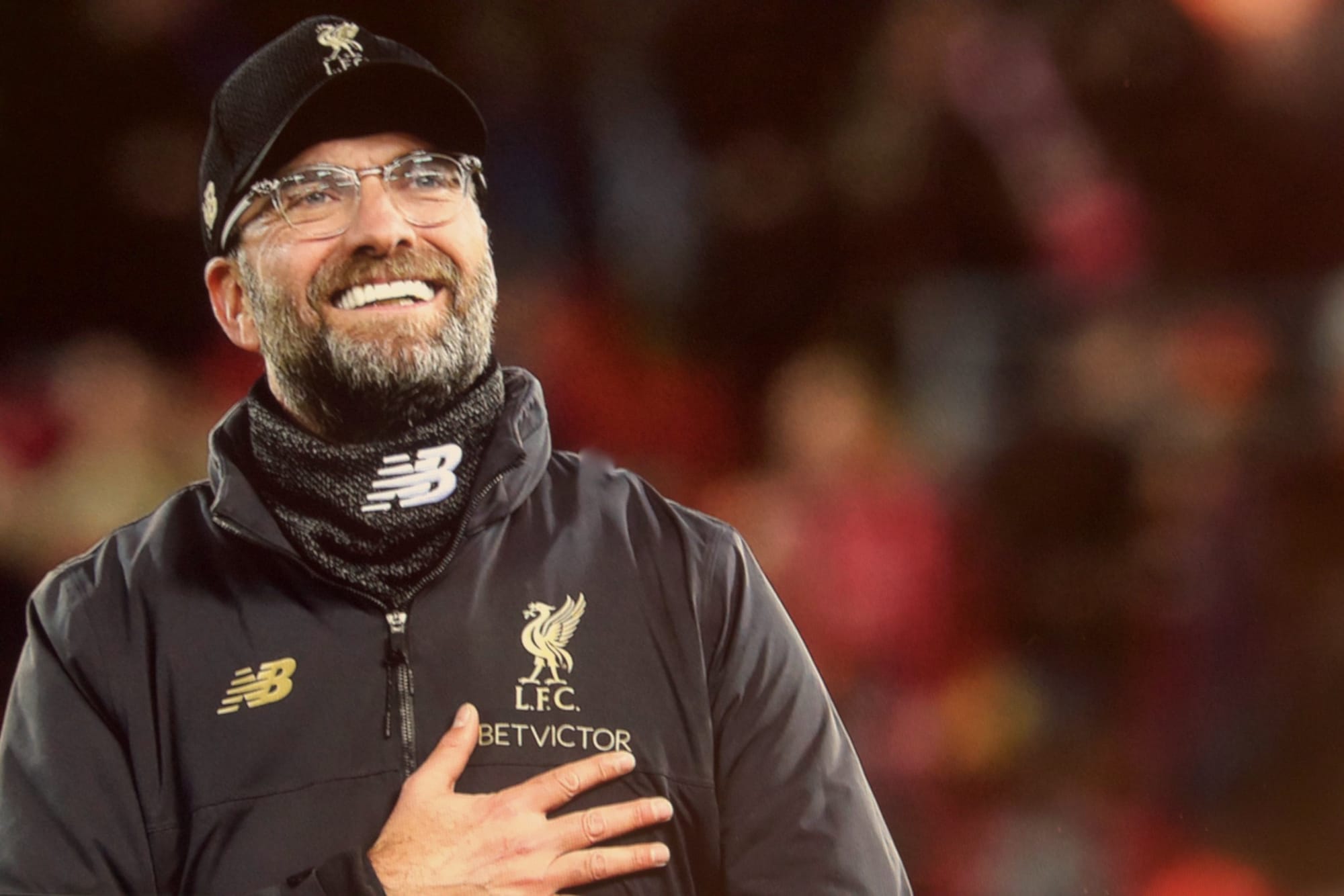
I. Introduction
Jurgen Klopp is one of the most successful and influential football managers in the world. The German coach has transformed Liverpool into a dominant force in England and Europe, winning multiple trophies and breaking several records. But who is the man behind the charismatic personality and the "heavy metal" football? How did he rise from a modest playing career to become a managerial legend? In this article, we will explore Klopp's life, career, philosophy, and achievements, and try to understand what makes him so special.
II. Klopp's Early Career and Influences
Jurgen Klopp was born on June 16, 1967, in Stuttgart, Germany. He grew up in a small village in the Black Forest, where his father, a former amateur footballer, encouraged him to play various sports. Klopp started his football career as a junior player for local clubs, such as SV Glatten and TuS Ergenzingen. He later moved to 1. FC Pforzheim and then to Frankfurt, where he played for three different teams: Eintracht Frankfurt II, Viktoria Sindlingen, and Rot-Weiss Frankfurt. During this time, he also studied sports science at the Goethe University of Frankfurt and obtained a diploma in 1995.
In 1990, Klopp joined Mainz 05, a second-division club, as a striker. He soon became a regular starter and a fan favorite, scoring 52 goals in 325 league appearances. He also switched positions several times, playing as a defender and a midfielder. He was known for his versatility, work ethic, and leadership skills. He retired as a player in 2001, at the age of 34, and became the manager of Mainz 05, following the departure of Eckhard Krautzun.
III. What is Gegenpressing?
Jurgen Klopp's favorite tactical style is called Gegenpress.
Gegenpressing, also known as counter-pressing, is a tactical approach in football that emphasizes immediate ball recovery after losing possession. The term "gegenpressing" originates from the German word "gegen," meaning "against," and "pressing," referring to the act of applying pressure on the opponent. At its core, Gegenpressing aims to disrupt the opponent's build-up play and regain possession as quickly as possible, typically within a few seconds of losing the ball. This aggressive and proactive style of play requires players to collectively swarm the opponent in the moments following a turnover, often in their own half or near the point of loss.
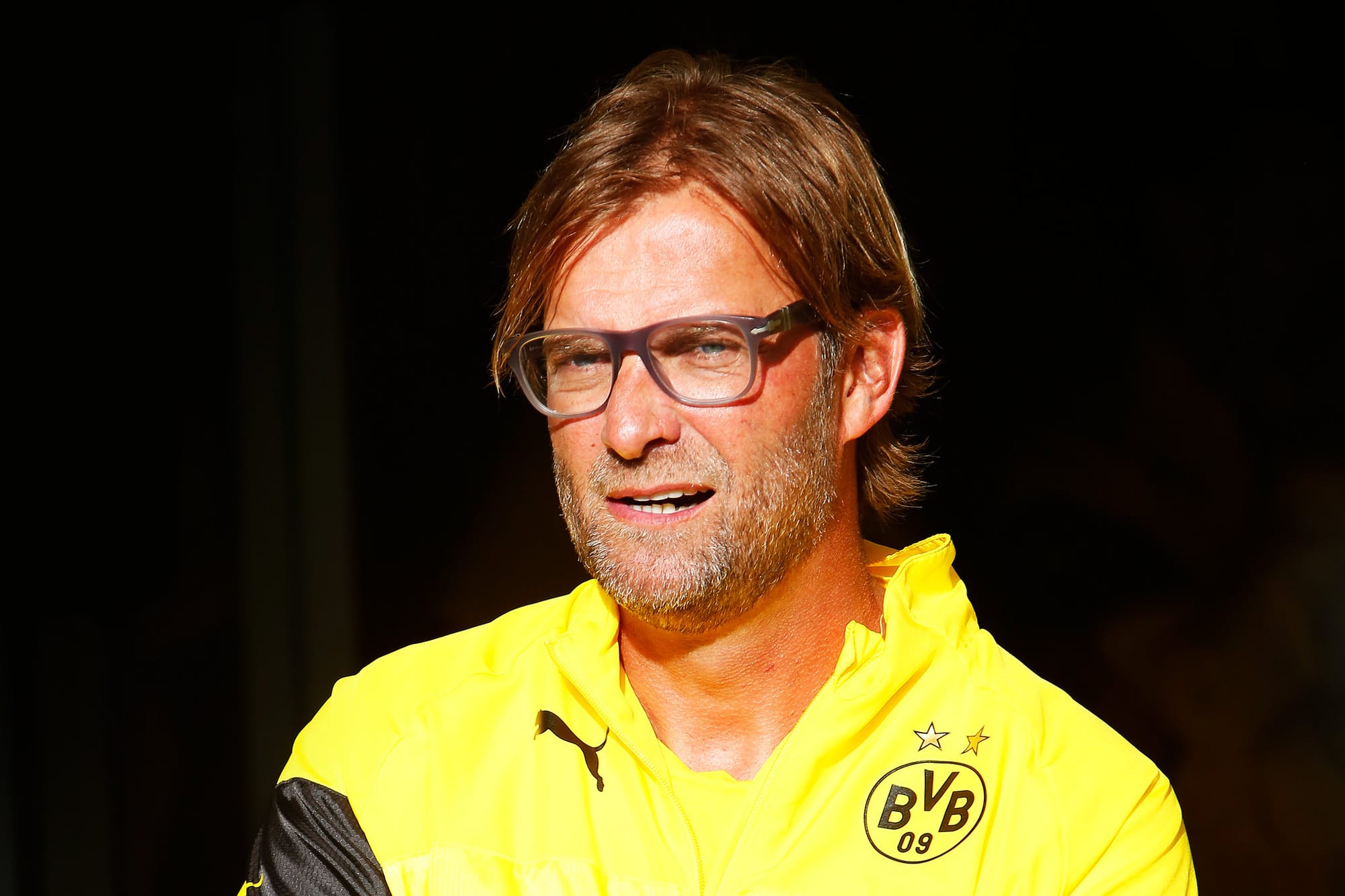
Unlike traditional tactics that may prioritize regrouping defensively or maintaining shape after losing possession, Gegenpressing advocates for an immediate and coordinated response to win back the ball. It relies on high energy, intense pressing, and cohesive teamwork to force turnovers and create scoring opportunities. One of the key principles of Gegenpressing is its emphasis on pressing triggers – specific situations or cues that prompt players to initiate the press. These triggers can include a misplaced pass, a heavy touch by an opponent, or the opponent's goalkeeper in possession. By capitalizing on these moments of vulnerability, teams employing Gegenpressing can disrupt their opponent's rhythm and regain control of the game quickly.
Overall, Gegenpressing is characterized by its proactive nature, collective effort, and relentless pursuit of the ball, making it a dynamic and effective tactical approach in modern football.
IV. Implementing Gegenpressing at Mainz 05 and Borussia Dortmund
Jurgen Klopp is widely regarded as one of the best football managers in the world, having won multiple trophies and accolades with Liverpool. However, his success story began in Germany, where he coached two clubs: Mainz 05 and Borussia Dortmund.
Klopp became the manager of Mainz 05 in 2001, after retiring as a player for the same club. He inherited a team that had narrowly missed out on promotion to the Bundesliga, and he vowed to achieve that goal. He implemented his own style of football, based on high pressing, fast transitions, and attacking play. He also developed a close bond with the players and the fans, creating a positive and passionate atmosphere. In 2004, he fulfilled his promise and led Mainz 05 to their first-ever promotion to the Bundesliga. He kept them in the top flight for three seasons, and also qualified them for the UEFA Cup in 2005. However, after suffering relegation in 2007 and failing to bounce back in 2008, he resigned as the club's longest-serving manager, having coached 270 matches in seven years.
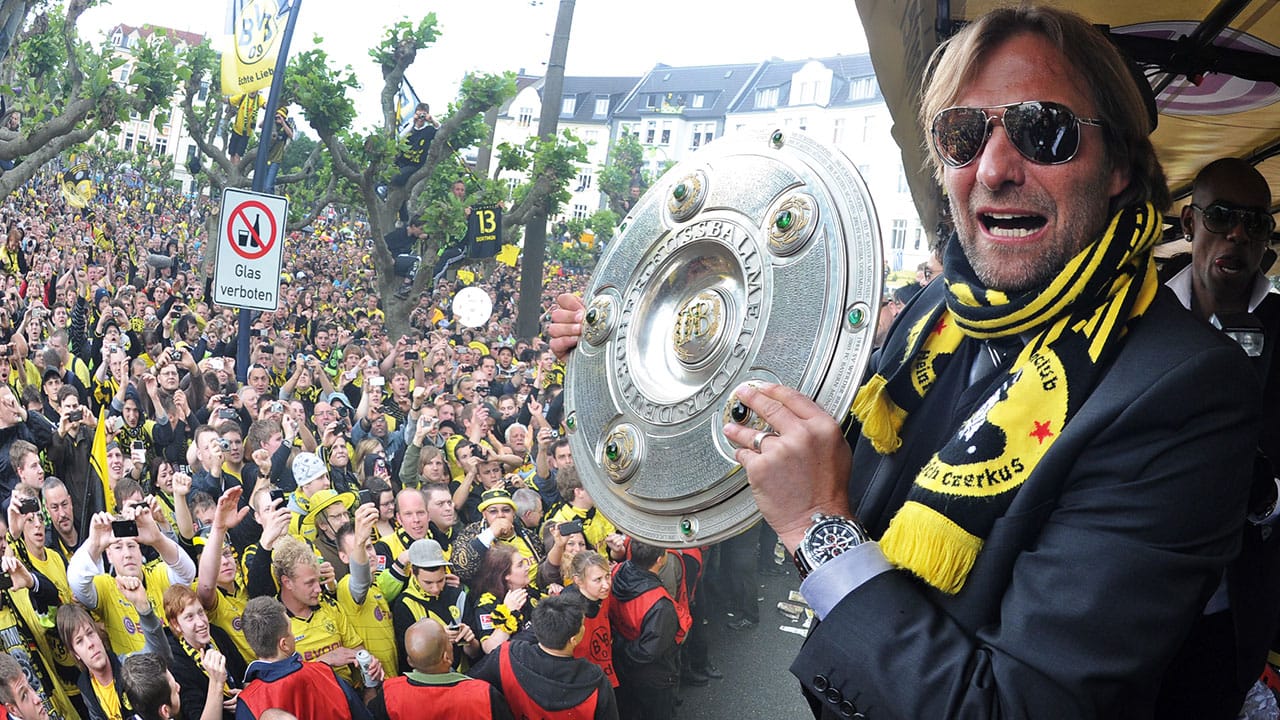
Klopp then joined Borussia Dortmund in 2008, replacing Thomas Doll. He inherited a team that had finished 13th in the Bundesliga, and was in financial trouble. He brought in young and talented players, such as Mats Hummels, Neven Subotic, Shinji Kagawa, and Robert Lewandowski, and molded them into a formidable unit. He also revived the club's identity and culture, restoring the connection with the fans and the city. He led Dortmund to the Bundesliga title in 2010–11, breaking Bayern Munich's dominance and setting a new points record. He then achieved a historic double in 2011–12, winning both the Bundesliga and the DFB-Pokal, and scoring the most goals in a single season. He also guided Dortmund to the UEFA Champions League final in 2012–13, where they lost to Bayern Munich in a thrilling match. He won two more DFB-Pokals in 2013–14 and 2014–15, before announcing his departure at the end of the 2014–15 season. He left Dortmund as their longest-serving manager, having coached 318 matches in seven years.
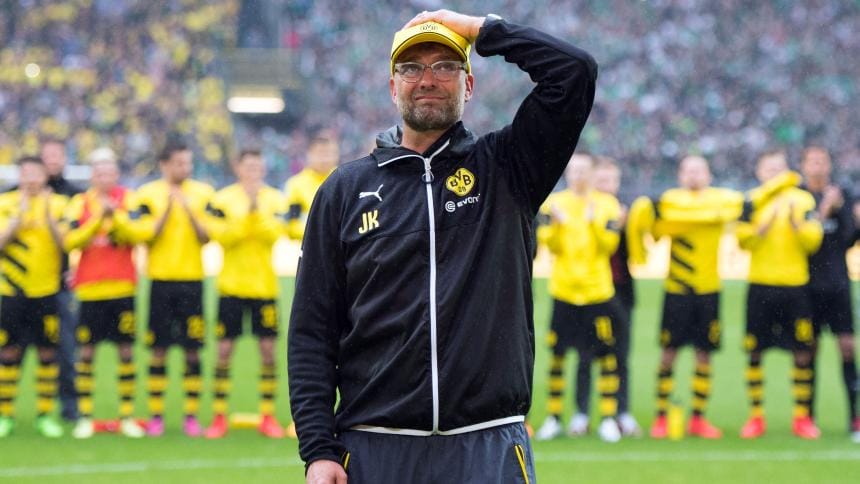
Klopp's achievements with Mainz 05 and Borussia Dortmund made him one of the most sought-after managers in Europe. He was admired for his tactical innovation, his motivational skills, his charismatic personality, and his entertaining football. He was also respected for his loyalty, his honesty, and his humility. He left a lasting legacy in both clubs, and paved the way for his future success with Liverpool.
V. The legacy created at Liverpool FC
Jurgen Klopp arrived at Liverpool in October 2015, following the departure of Brendan Rodgers. He inherited a team that had finished sixth in the Premier League the previous season, and had not won a major trophy since 2012. He signed a three-year contract, with the option of a further year, and declared his ambition to turn Liverpool into a "believing giant" and to win titles within four years.
Klopp's first season at Liverpool was marked by inconsistency in the league, but also by impressive runs in the cup competitions. He guided Liverpool to the finals of both the League Cup and the UEFA Europa League, where they lost to Manchester City and Sevilla respectively. He also introduced his trademark style of football, known as "Gegenpressing", which involved high intensity, pressing, and attacking play. He also improved the performances of several players, such as Philippe Coutinho, Roberto Firmino, and Adam Lallana.
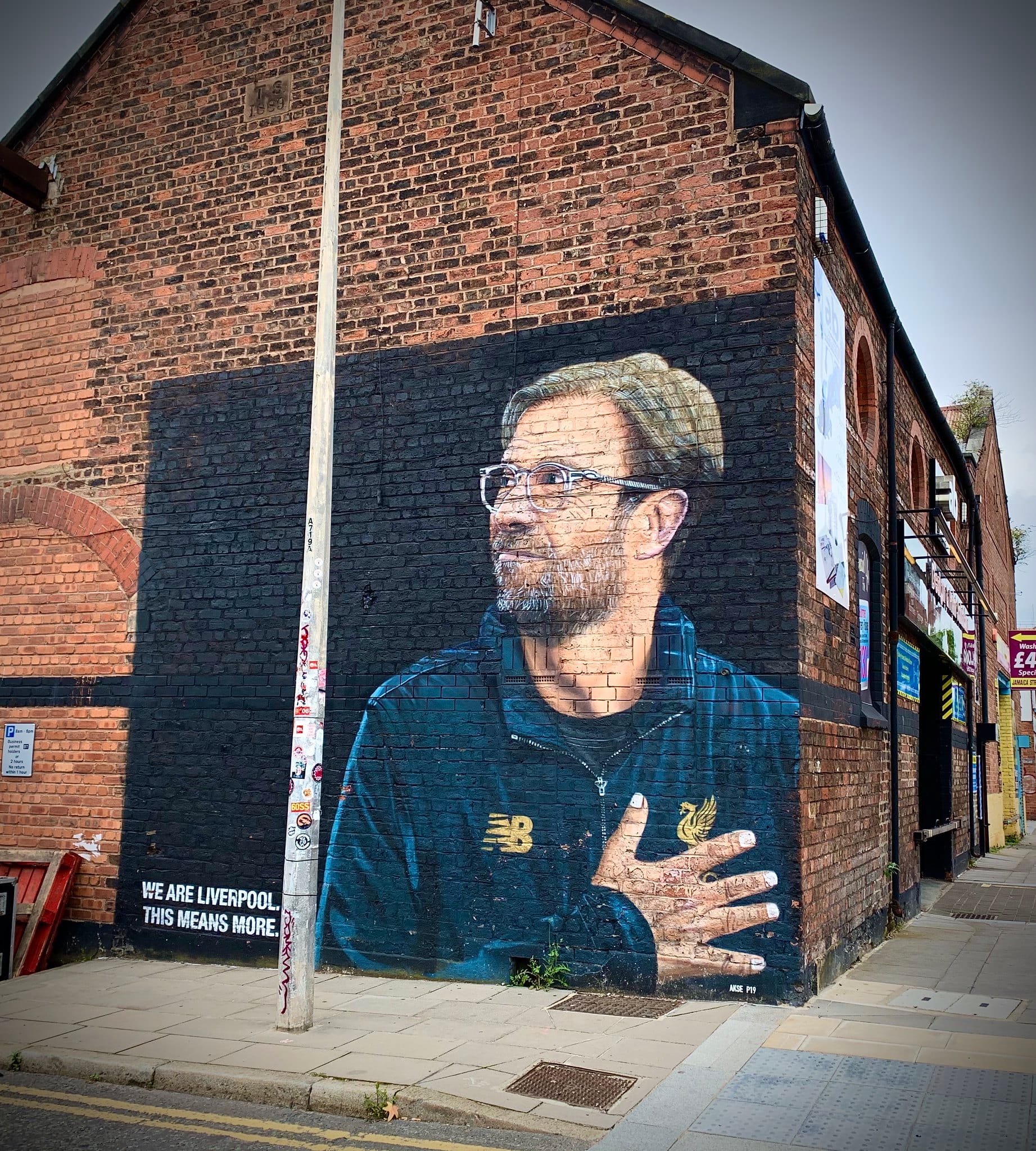
Klopp's second season at Liverpool saw an improvement in the league, as he led the team to a fourth-place finish, securing Champions League qualification for the first time since 2014. He also made some key signings, such as Sadio Mane, Georginio Wijnaldum, and Joel Matip, who added pace, creativity, and solidity to the team. However, he also faced some challenges, such as injuries, defensive issues, and a lack of squad depth, which hampered the team's consistency and prevented them from challenging for the title.
Klopp's third season at Liverpool was a breakthrough one, as he transformed the team into a formidable force in both England and Europe. He made some crucial signings, such as Mohamed Salah, Virgil van Dijk, and Andrew Robertson, who became integral parts of the team. He also developed a lethal attacking trio of Salah, Mane, and Firmino, who scored 91 goals in all competitions. He led Liverpool to a third-place finish in the league, with a Premier League club record of 75 points, and also to the final of the Champions League, where they faced Real Madrid. Despite losing 3-1, Liverpool earned praise for their thrilling and fearless football, and Klopp vowed to come back stronger.
Under Klopp's guidance, Liverpool has experienced a remarkable transformation, evolving from top-four contenders to genuine title challengers both domestically and in Europe. The crowning achievement of Klopp's tenure came in the 2018-2019 season when Liverpool captured the UEFA Champions League trophy, defeating Tottenham Hotspur in the final to claim their sixth European Cup.
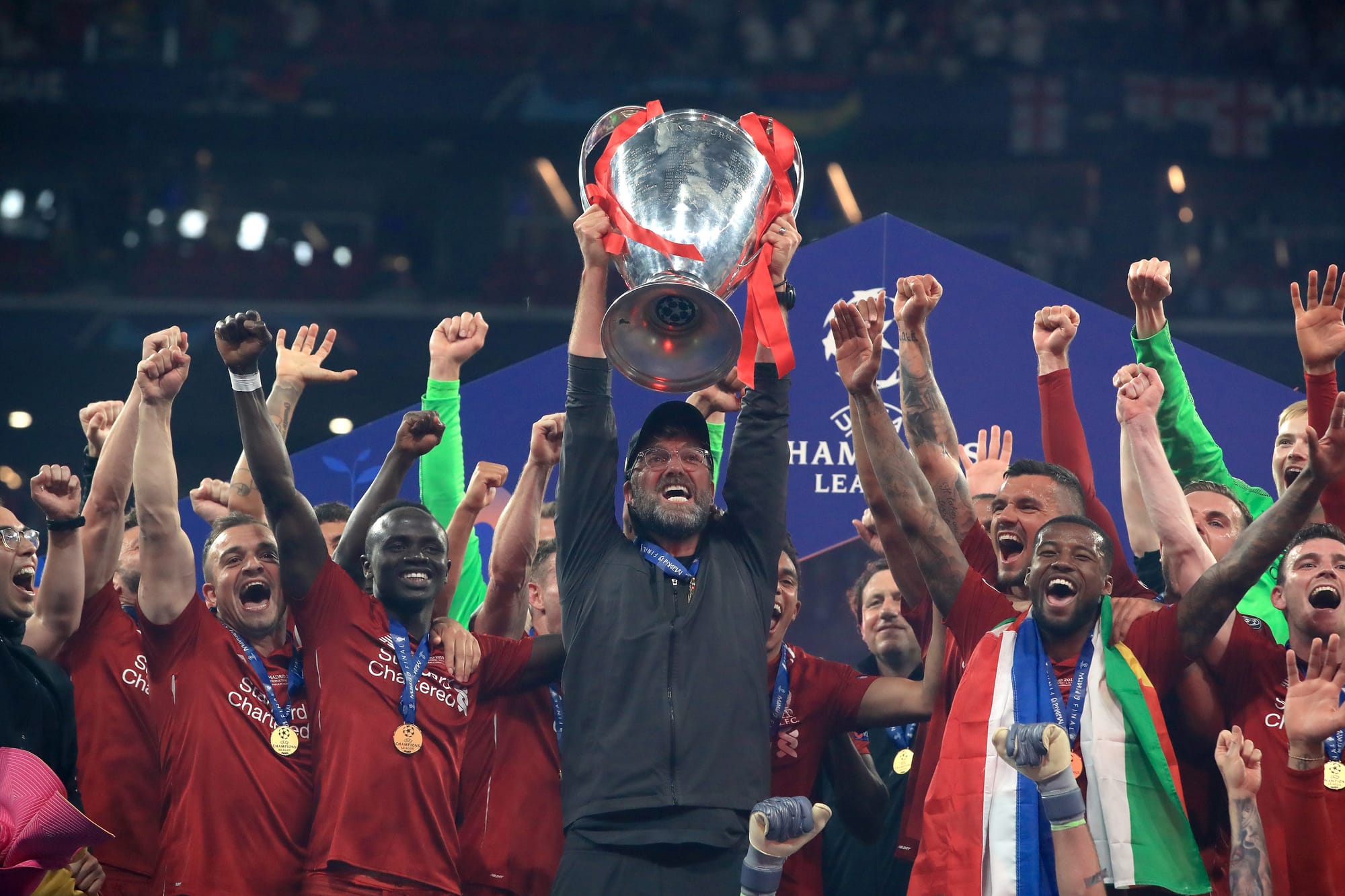
In the 2019-2000 season he led Liverpool to their first league title in 30 years, with a record-breaking campaign. Liverpool amassed 99 points, the second-highest total in Premier League history, and broke several records, such as the most wins (32), the most home wins (18), the biggest points margin (18), and the earliest title win (with seven games remaining). In the same season, on 21 December 2019, he led Liverpool to their first FIFA Club World Cup trophy, with victory over Flamengo in the final, making his team the first English side to win the international treble of the Champions League, Super Cup and Club World Cup.
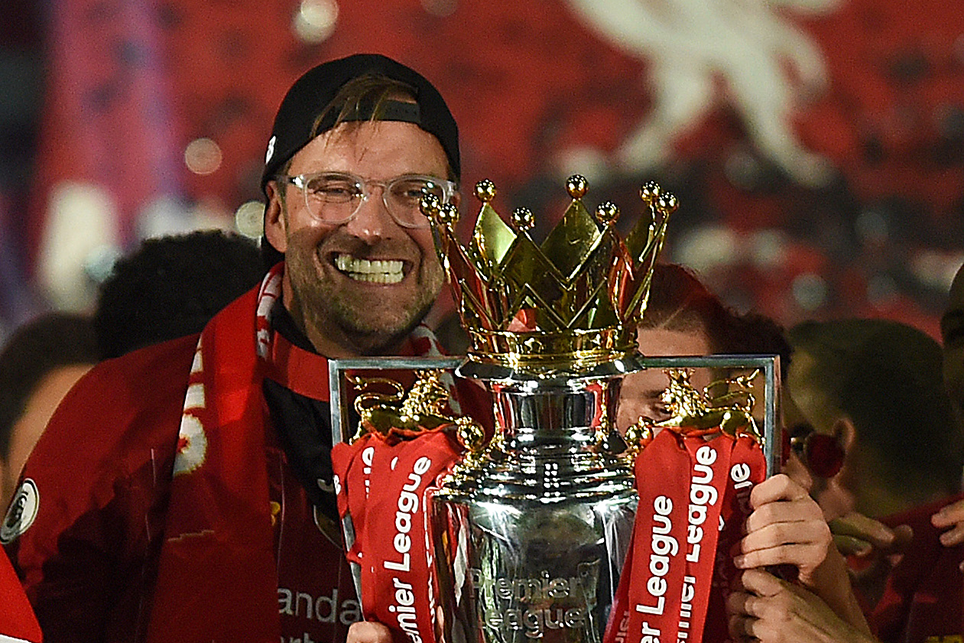
Klopp's current season at Liverpool will be his last one, as he announced in January 2024 that he would leave the club at the end of the season, citing personal reasons. He said he wanted to take a break from football, and thanked the club, the fans, and the players for their support and trust. He also expressed his gratitude to Liverpool for giving him the opportunity to fulfill his dreams, and said he was proud of what he had achieved with the club. He we leave Liverpool as one of their greatest and most loved managers, having won nine trophies in six years, including the Premier League, the Champions League, the FIFA Club World Cup, and the UEFA Super Cup. He also left a lasting legacy in the club's history, culture, and identity, and inspired a generation of fans and players with his passion, charisma, and philosophy.
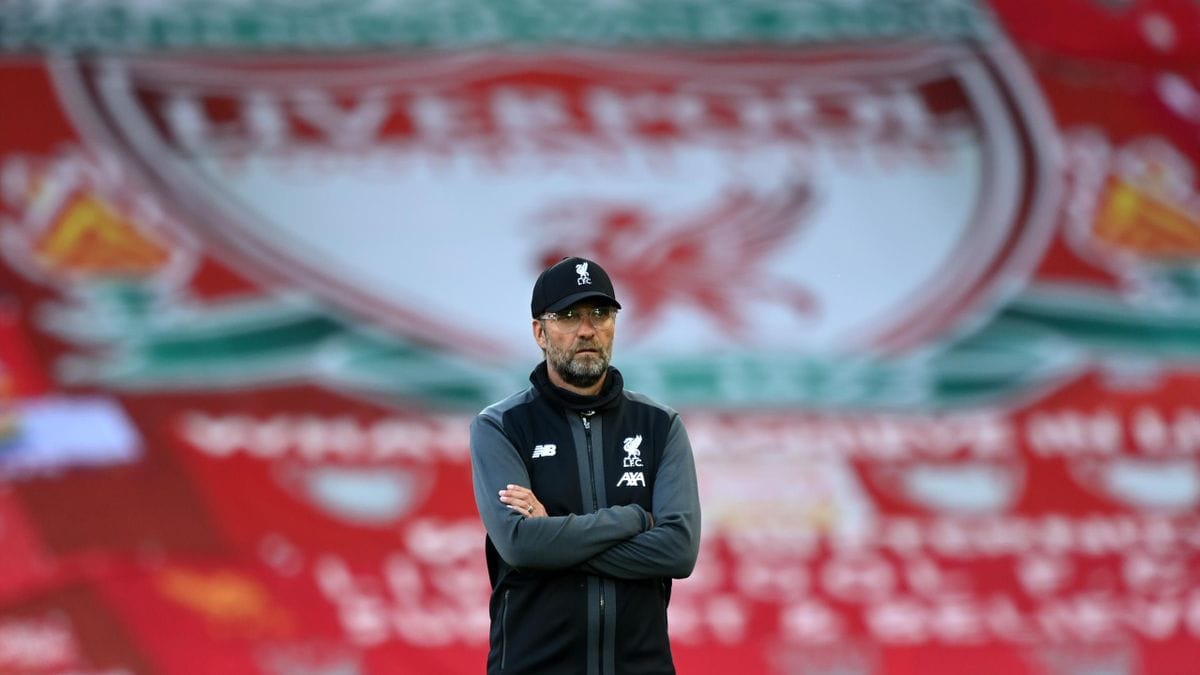
Beyond tactical innovation and on-field success, Klopp's impact on Liverpool extends far beyond the confines of the football pitch. His infectious enthusiasm, charismatic leadership, and genuine rapport with players and fans alike have fostered a sense of unity and belonging at the club, creating an environment where players feel empowered to express themselves and fans feel connected to the team like never before. Klopp's man-management skills have been particularly noteworthy, as he has cultivated a strong sense of camaraderie and collective spirit within the squad, fostering a culture of mutual respect, hard work, and determination. His ability to extract the best from each player, regardless of their individual talents, has been instrumental in Liverpool's success and has endeared him to both players and supporters alike.
VI. Klopp's Legacy as the Master of Gegenpressing
Jurgen Klopp's legacy as the master of Gegenpressing extends far beyond his achievements at Liverpool Football Club. Klopp's innovative tactical approach has revolutionized modern football, influencing coaches and teams around the world. Gegenpressing, characterized by its high-intensity pressing and immediate counter-pressing to win back possession, has become a hallmark of Klopp's teams and a blueprint for success in contemporary football.
Klopp's implementation of Gegenpressing at Liverpool has redefined the way teams approach the game, emphasizing collective pressing and rapid transitions as fundamental components of effective gameplay. His teams are known for their relentless energy and aggressive pressing, disrupting opponents' rhythm and forcing turnovers in dangerous areas. The impact of Klopp's Gegenpressing is evident not only in Liverpool's performances but also in the strategies adopted by other top clubs seeking to emulate his success. Coaches across various leagues have integrated elements of Gegenpressing into their own tactical philosophies, recognizing its effectiveness in both defensive organization and offensive transitions.
VII. Conclusion
In conclusion, Jurgen Klopp's managerial career stands as a testament to his extraordinary talent, unwavering dedication, and remarkable impact on the footballing world. From his humble beginnings in Germany to becoming one of the most revered figures in the sport, Klopp's journey has been nothing short of remarkable.
Throughout his career, Klopp has epitomized the values of hard work, resilience, and innovation. His ability to instill a winning mentality, foster team spirit, and develop cohesive playing styles has led to unparalleled success at every club he's managed.
Klopp's crowning achievements include leading Borussia Dortmund to two Bundesliga titles and guiding Liverpool to their first Premier League title in 30 years, along with Champions League and FIFA Club World Cup triumphs. Beyond the silverware, Klopp's impact transcends the pitch, as he's become known for his charismatic personality, heartfelt passion, and genuine connection with fans.
As Klopp's managerial journey continues, his legacy as one of football's greatest minds is secure. His innovative tactics, inspirational leadership, and unwavering commitment to his principles have left an indelible mark on the sport. Regardless of what the future holds, Klopp's influence will continue to shape the game for years to come, ensuring his place among the pantheon of managerial greats.

